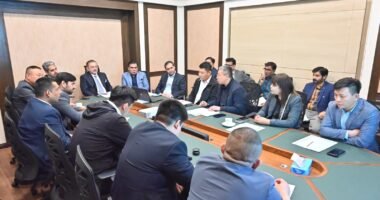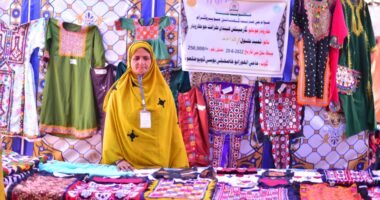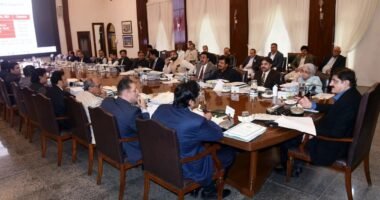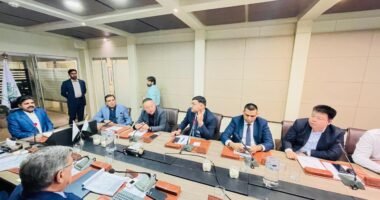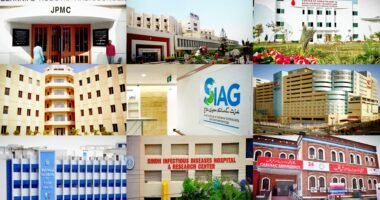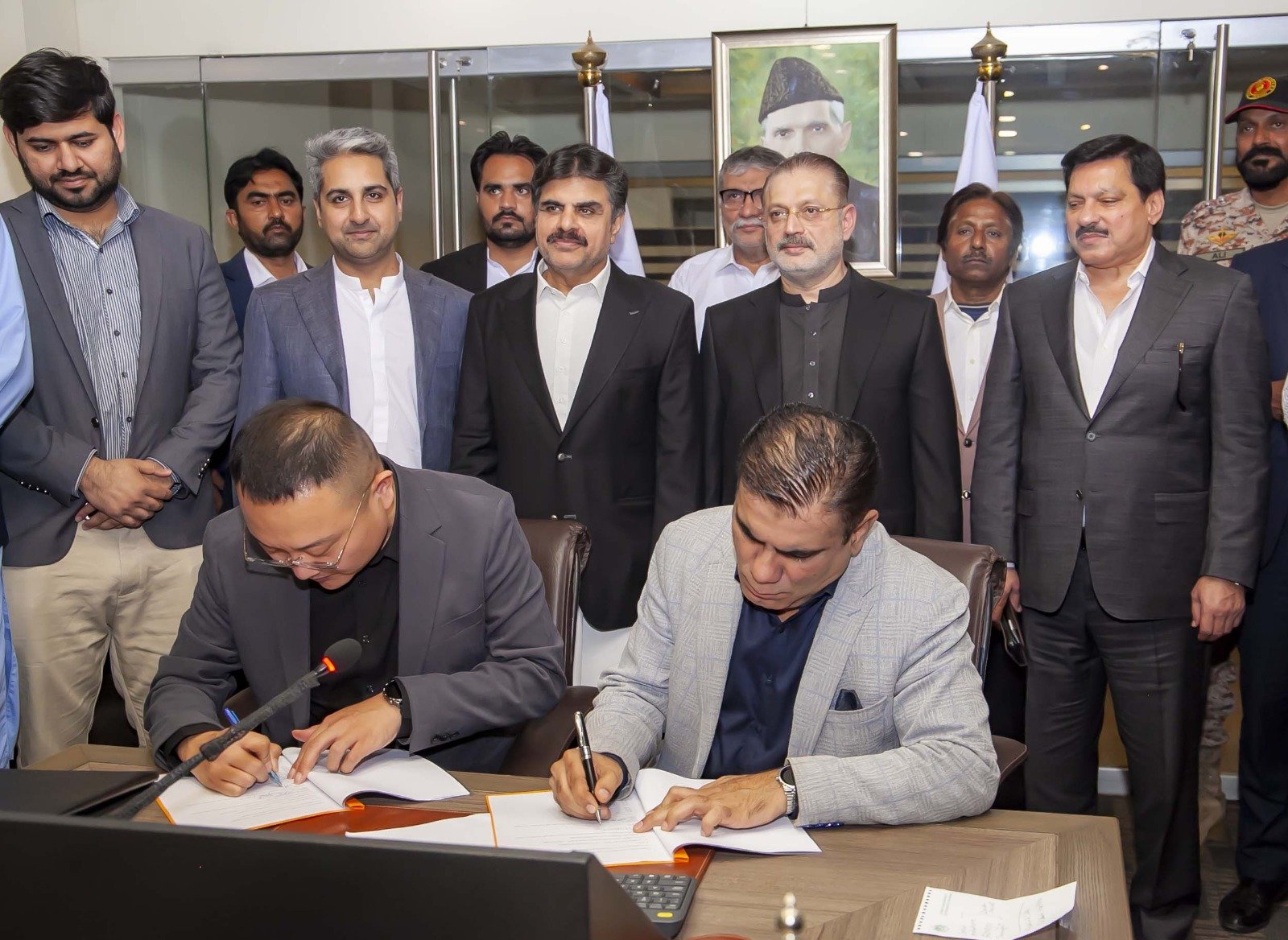
In a significant move to strengthen economic ties and enhance industrial growth, Chinese and Pakistani diplomats signed memorandums of understanding (MoUs) for five major projects in Karachi, aimed at boosting sectors such as transport, healthcare, energy, and agriculture. The signing ceremony was held under the auspices of the Sindh government, with notable participation from Sindh Senior Minister Sharjeel Inam Memon, Sindh Energy Minister Syed Nasir Hussain Shah, and Special Assistant to the Chief Minister, Syed Qasim Naveed Qamar. The agreements include key initiatives such as local assembly of electric vehicles (EVs), production of solar panels, slow-release fertilizers, algae farming, and the establishment of a state-of-the-art medical city in the Dhabeji Special Economic Zone.
Highlights of the MoUs:
- Electric Vehicle Production: A MoU has been signed for the local assembly of electric cars in Pakistan, aligning with Sindh’s green energy vision. The initiative aims to promote sustainable transport and create employment opportunities, especially for youth, by introducing EV taxis across the province.
- Renewable Energy Projects: The MoU also includes the local manufacturing of solar panels and the establishment of solar parks in Sindh, a key part of the government’s energy strategy to combat power shortages. The solar energy produced will be sold at a fixed rate of Rs 18 per unit, making it affordable for the general population.
- Agricultural Innovation: Slow-release fertilizers and algae farming initiatives are part of the agreements aimed at increasing agricultural productivity while conserving water—a crucial step in Pakistan’s arid regions.
- Medical City in Dhabeji: One of the most ambitious projects is the establishment of a medical city in the Dhabeji Special Economic Zone, which will not only provide high-quality healthcare but also generate up to 50,000 jobs in the region.
- Coal-based Energy Production: The Thar coalfields will play a central role in a planned coal gasification plant, producing economical electricity that is expected to meet the energy demands of the country for centuries.
Key Ministerial Statements:
Sharjeel Inam Memon (Sindh Senior Minister for Information, Transport, and Mass Transit)
Speaking at the ceremony, Sharjeel Inam Memon reiterated the Sindh government’s unwavering support for Chinese investors. He acknowledged the strong and historic friendship between China and Pakistan, tracing its roots back to Shaheed Zulfikar Ali Bhutto’s era and further solidified under the leadership of President Asif Ali Zardari, who initiated the China-Pakistan Economic Corridor (CPEC) project. He noted that the Chinese investors have shown keen interest in various sectors such as medical services, renewable energy, and transport. He also pointed out the significance of the Dhabeji Special Economic Zone as it connects directly to the CPEC corridor, offering lucrative investment opportunities.
Minister Sharjeel Inam Memon underscored the importance of public-private partnerships (PPP), crediting Sindh’s success in this model for placing Pakistan at the top of global PPP rankings. He also touched on the government’s initiative to introduce electric vehicle (EV) taxis to not only reduce emissions but also provide affordable transport and create thousands of jobs, especially for the youth.
Syed Nasir Hussain Shah (Sindh Minister for Energy, Planning, and Development)
Syed Nasir Hussain Shah addressed the conference with a focus on Sindh’s growing energy sector. He detailed plans for coal gasification and solar energy projects, which he said would play a pivotal role in addressing Pakistan’s energy deficit. He emphasized that electricity generated from Thar coal would significantly reduce the nation’s reliance on expensive imported fuel. In addition, solar energy generated in Sindh will be offered to consumers at a fixed, lower rate of Rs 18 per unit, ensuring affordability and stability in power costs for the public.
Minister Syed Nasir Hussain Shah also pointed out the lack of representation of Sindh in K-Electric’s decision-making processes, despite the province being one of the largest consumers of electricity in Pakistan. He expressed his concern that this absence results in no voice for Sindh in determining energy tariffs and load-shedding schedules, calling for better provincial representation in national energy decision-making bodies.
Syed Qasim Naveed Qamar (Special Assistant to Chief Minister for Investment and Public-Private Partnerships)
Syed Qasim Naveed Qamar spoke about the positive outcomes from the visit of the Chinese investor delegation, which included a tour of the Dhabeji Special Economic Zone. He highlighted the investors’ interest in setting up industries within this zone, particularly in sectors like healthcare and manufacturing. He emphasized the region’s strategic importance due to its direct link to CPEC, making it an ideal location for both domestic and international businesses.
Syed Qasim Naveed Qamar also elaborated on the plans to process Thar granite locally rather than exporting raw material for processing abroad, which would add significant value to the product and create jobs within Pakistan.
The signing of these MoUs marks a major milestone in Pakistan-China economic cooperation, with the Sindh government playing a pivotal role in facilitating these large-scale projects. These initiatives will not only create thousands of jobs but also help Pakistan meet its long-term energy needs, improve agricultural productivity, and foster industrial growth. With the support of Chinese investors and a conducive policy environment in Sindh, these projects are poised to bring significant economic benefits to the region and the country at large.


